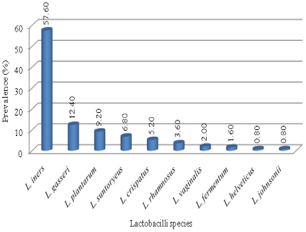Abstract
Preterm labor is a common and serious obstetric complication that is believed to be multifactorial. Lactobacilli vaginal colonization is proposed as a protective agent against preterm delivery and that women with bacterial vaginosis, with altered vaginal flora in favor of lactobacilli species absence, is a risk factor for increased incidence of preterm labor; however enough controversy is present in available published literature. This study was aimed to evaluate the association between vaginal bacterial composition and the rate of preterm labor in pregnant women. Vaginal swabs form a total of 250 pregnant women were obtained and assessed using the V2-V3 region of the 16S rRNA sequences for an estimation of lactobacilli colonization. These women were followed up for the outcome of pregnancy. Women with predominantly lactobacilli species were significantly less liable for preterm labor than those women who lack lactobacilli species in their vaginal samples, 10.4% versus 64.2% (P<0.001). To evaluate the risk of preterm labor associated with non- lactobacilli bacterial colonization, Odds ratio was estimated and it was 15.39 (95% confidence interval of 7.91- 29.95). This study concluded that the risk of preterm labor is significantly increased with bacterial vaginosis in favor of alteration of vaginal flora with deficient lactobacilli species.
Full text article
Authors

This work is licensed under a Creative Commons Attribution-NonCommercial-NoDerivatives 4.0 International License.

